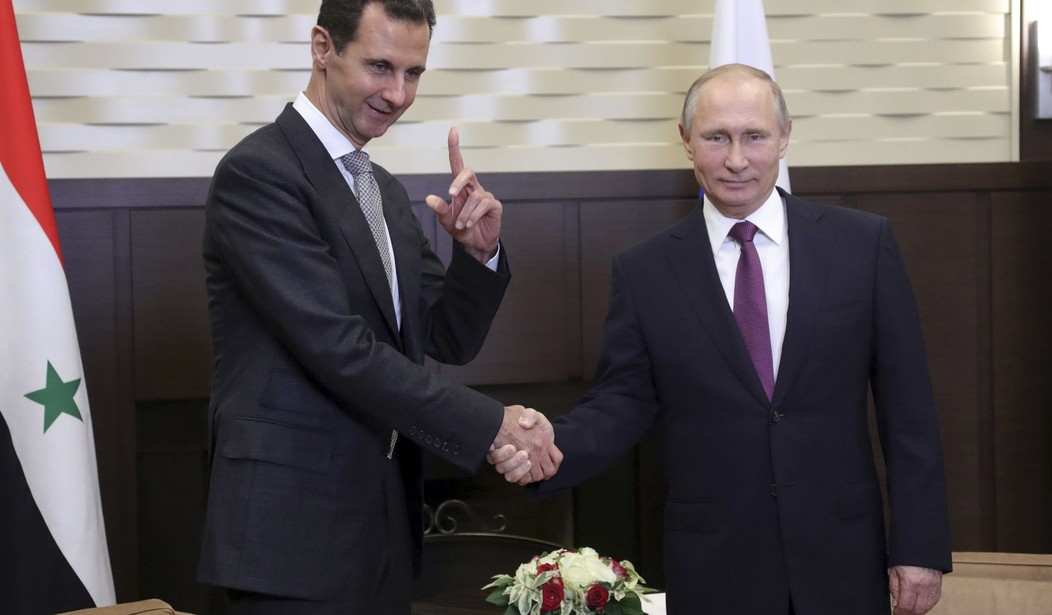It is generally believed in European and American political circles that Russia owns Iran and Syria. Vladimir Putin is the puppeteer who pulls the strings of Bashar al-Assad and Ali Khamenei whenever he wants. If, then, the Iranian issue and the problems in Syria are to be solved, we only need to get Russia on our side and all will be well.
Although this is exactly what Putin wants the West to believe, the truth is far more complicated. Yes, he certainly has some influence in and over Syria and Iran, but he’s no master puppeteer. Instead, he, Assad and Khamenei are all trying to defend their own interests. When those interests line up, they work together. But when they don’t? Well, then they’ll do whatever is best for them while hoping that the decision doesn’t create too much trouble with the other two.
Writing for Al-Monitor, Maxim A. Suchkov explains:
In the absence of other leverage over Assad, Western and regional governments continue to appeal to Russia to work its influence, which it has been doing with random successes. The truth is, two years into Russia’s direct involvement in the Syria conflict, it’s still impossible to assess to what degree Assad is under Moscow’s control. Russia has palpable influence in some major areas, such as the military and intelligence. Russian military instructors are training the Syrian army, Russian officers have planned major offenses for government forces and in private chats, and Russian diplomats would say Assad is listening to what the Kremlin has to say. At the same time, Moscow has no illusions about Assad’s personal loyalty or his ambitions to keep his power, despite Russian efforts for a political settlement and talks with the opposition.
As for Iran:
Russia and Iran are “strategic singles” in the international and regional arenas, and each ultimately has a strong sense of self. But they share an affinity for the way things are shaping up in the Mideast, and they intend to have each other as partners rather than adversaries.
There’s not as much space between those two poles as some might think, however, and there’s a delicate balance that could be upset easily with a careless move by either party. Neither side wants to find out what the result of such a move might look like. That’s why Russia’s not willing to put pressure on Iran to leave Syria.
It’s probable that Putin considers Iranian policies in the Middle East as toxic as we do, but he won’t do anything about them as long as Khamenei doesn’t hurt Russia‘s interests. The reason he won’t do so is simple: if he tries to tell Iran what to do, Russia’s supposed alliance with Iran may very well be ended immediately. That’s because Iran serves its own interests (and ideology), not those of Russia.
What’s more, Russia and Iran have historically been at odds with each other. Geopolitically and culturally it makes more sense for them to be rivals than allies. To understand this you only need to know that Russia has always considered itself the main defender of (Orthodox) Christianity. This was the case under the tsars and now again under Putin. At the same time, Iran sees itself as the defender and advocate of Shiite Islam. In the end, Iran’s ruling group wants to destroy the entire Christian world, while Russia believes its historical role is to prevent the Christian world from suffering exactly that fate.
The two can and certainly do work together on occasion — and nowadays even more often than that — but they’ll never be real partners joined at the hip.









Join the conversation as a VIP Member